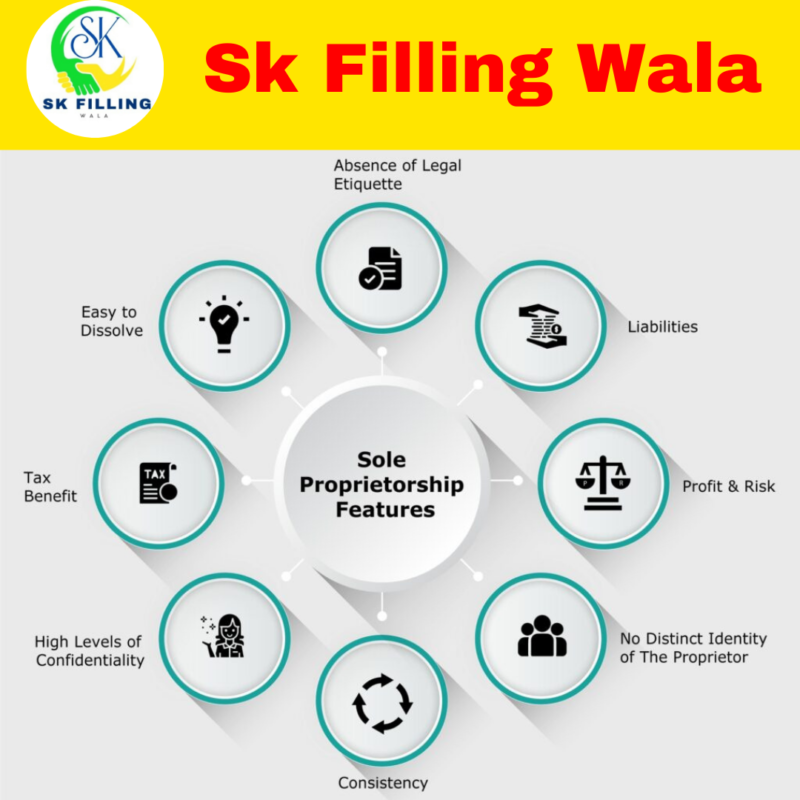Sole Proprietorship Company Registration
A Sole Proprietorship is the simplest business structure. Unlike entities like an LLC or Corporation, you don’t have to file business registration paperwork with the state. sole proprietorship company
In New York, you’re considered a Sole Proprietorship as soon as you start conducting business activities. However, you may still need to register your business name and obtain a DBA (Doing Business As) Name.
Legal Business Name
A legal business name is the official name of a company or entity that appears on its registration documents filed with and approved by the state. It must be distinctive to avoid confusion with other businesses and must include the owners’ surnames unless some states allow it to use additional details, such as “Smith Fabrications.” For example, suppose Robert Smith operates a real estate company that he calls Rockwell Realty, Inc. If he decides to create a formal business entity, such as a limited liability corporation or a corporation, he must choose a new legal business name for it when filing its formation documents with the state.
Sole proprietors do not need to register their business names. However, if they conduct business under a name other than their own legal name, most states require them to file a fictitious name statement or DBA (“doing business as”) filing. This requirement is often done with the county clerk or, in some states, a state agency.
Professional corporations are required to indicate their corporate status by including the wording “Incorporated” or some other description in their legal business names. They also must identify their business types in their legal names. Typically, the name must indicate that it is a retail or service business and not a manufacturer or wholesaler. In addition, some states require that business entities register their legal names in the national Trademark Electronic Search System.
Registered Agent
A registered agent is the point of contact for a legal business entity, and it’s required by law to have a physical address in the state where the business is incorporated. The agent receives service of process, government documents and legal mail on behalf of the company. If the agent fails to respond in a timely manner, a lawsuit may be served on the company, resulting in lost time and money for the company.
A small business owner can designate themselves as their own registered agent, but this is a risky option for several reasons. The designated agent must be regularly available at the listed address, and this can be a problem if the business keeps non-standard hours or operates out of a home office. In addition, the address becomes public record and some owners don’t like this compromise to their privacy.
Another option is to hire a commercial registered agent service provider. These companies charge a fee to act as your agent, and they can save you on potential publication costs by not listing your home address in the public records. They also offer additional services, such as scanned documents and digital storage. CT Corporation is an experienced registered agent service provider that specializes in assisting companies with their compliance filings and litigation management. Its team of experts is comprised of individuals with global, regional and local knowledge on registered agents, incorporation, and corporate compliance.
Business Taxes
There are a variety of business structures to choose from, each with implications for taxes, personal liability, and registration requirements. Consult with a business counselor, attorney, or accountant to help determine which structure best suits your needs.
A sole proprietorship is easy to register and provides full control of the company. Its personal-liability structure means the owner is responsible for all debts, and it terminates at death or retirement. It also has fewer operating costs and compliance obligations than other types of businesses.
Naming protocols are flexible; a sole proprietorship can use the proprietor’s name in its legal business name or create a fictitious name. If the business uses a fictitious name, it must file a DBA (Doing Business As) name certificate with the county clerk in each county where the business operates.
The profit structure is simple: a sole proprietorship reports profits and losses on its personal tax return (pass-through taxation). If the business has employees, it must obtain an EIN from the IRS, also known as an EIN, FEIN, or Federal Employer Identification Number.
A business must pay sales and use tax on any tangible property it sells or buys from outside the state. It must also collect sales tax from customers and report it to the state. The tax rate depends on the jurisdiction.
Business Licenses
The business structure you choose influences everything from day-to-day operations to taxes and how much of your personal assets are at risk. It’s important to choose a structure that offers the right balance of legal protections and benefits for your company. Then, it’s essential to register the business with your state and get the appropriate licenses and permits.
The types of business licenses you need depend on your industry and federal, state, county, and city regulations. However, a few common ones include:
A business name license allows you to use a specific name for your business. This name must be unique and comply with your state’s rules for businesses. You may also need to get a zoning permit, which grants you permission to operate your business in certain areas.
You’ll also need to secure an employer identification number, which is a unique number that the IRS assigns to your business. This number is used to identify your business for tax purposes and to open a bank account. You’ll also need a primary business address, which can be your home address or a mailbox that you rent.
New York requires a general business license at the state level, but some businesses need additional industry-specific or local licenses. Check the New York Department of State’s website for details.

